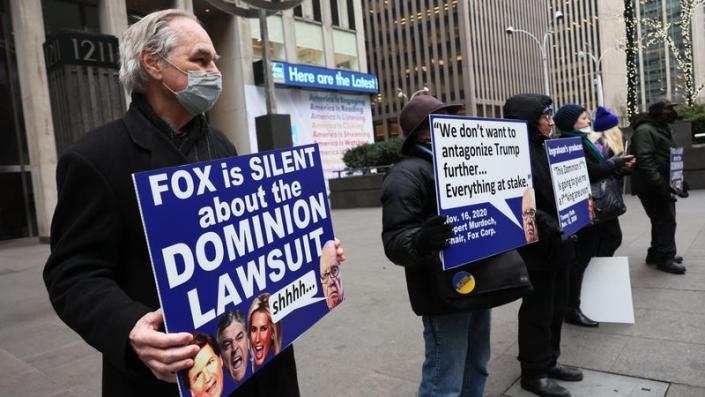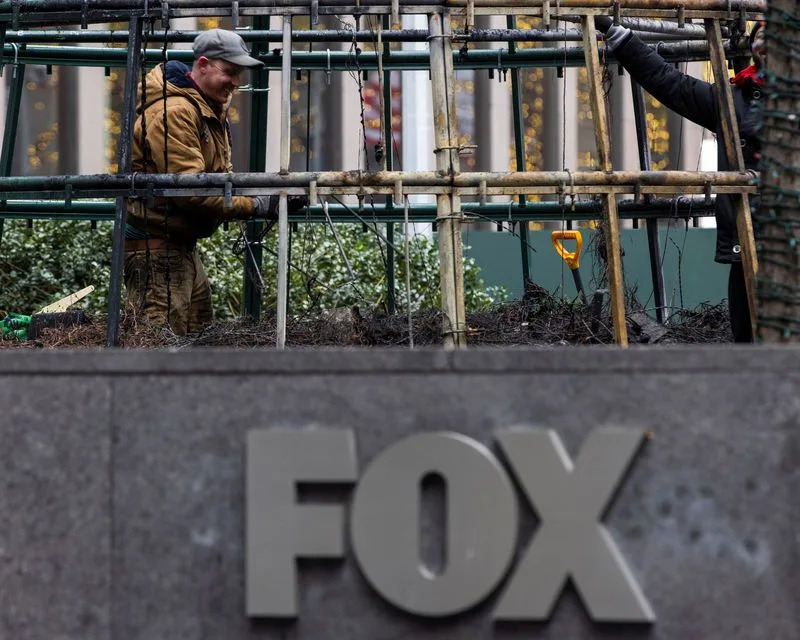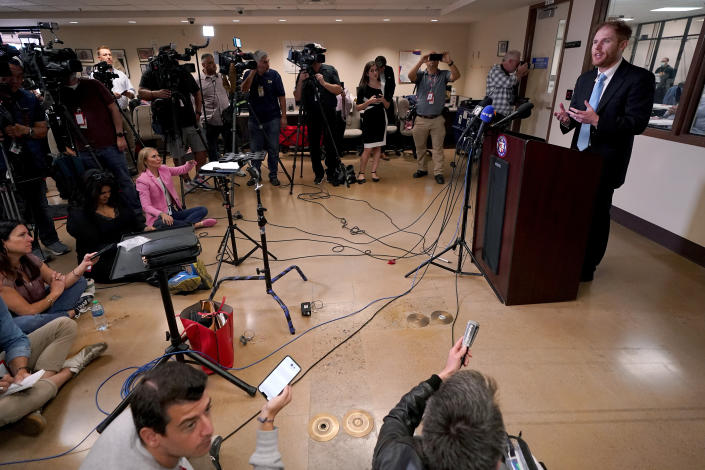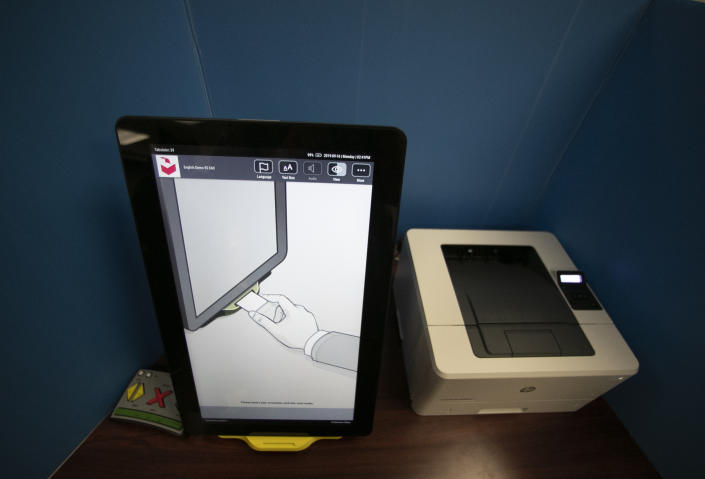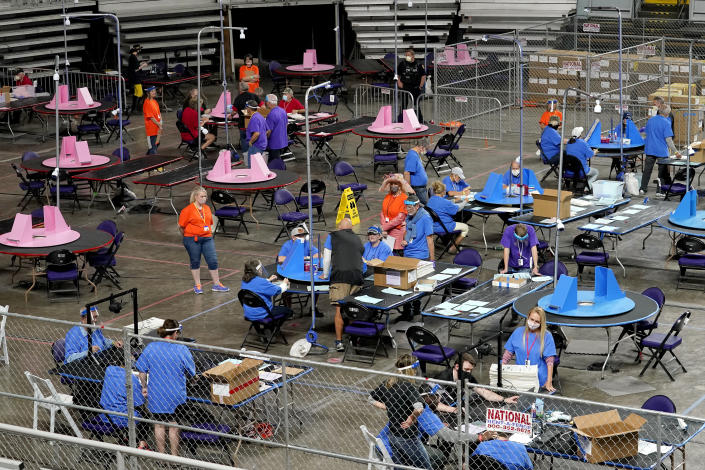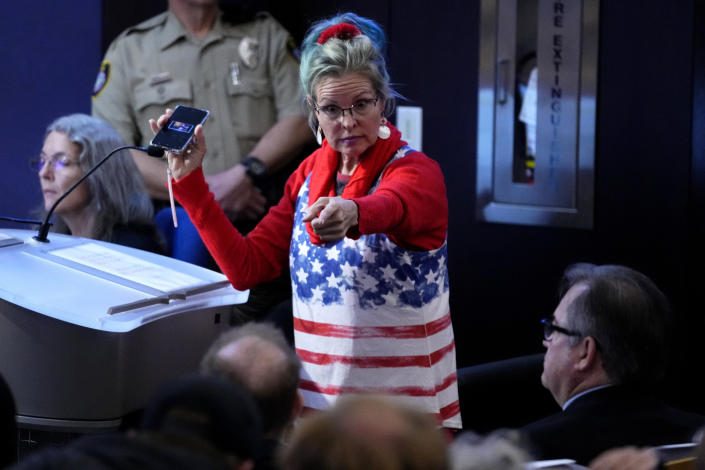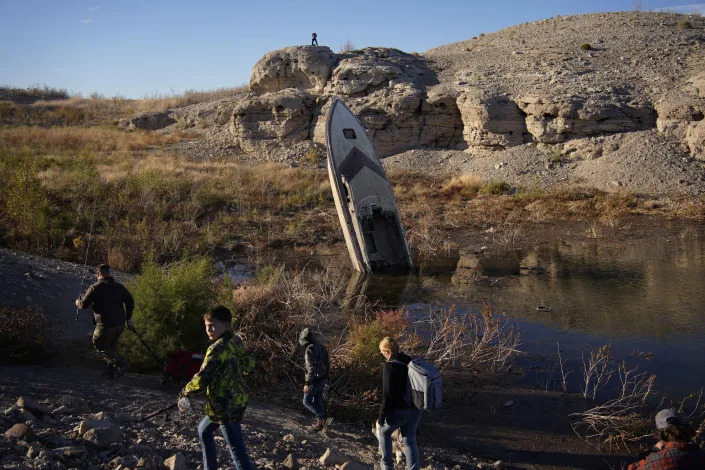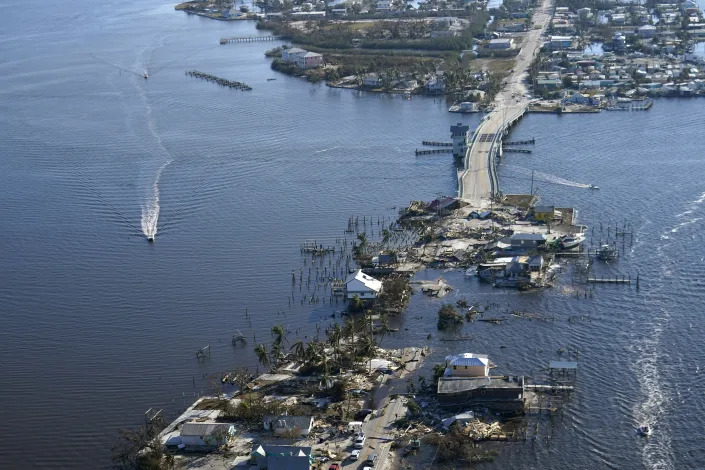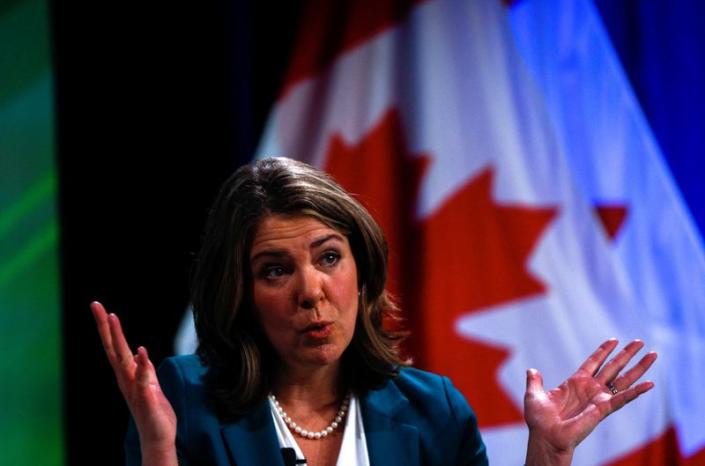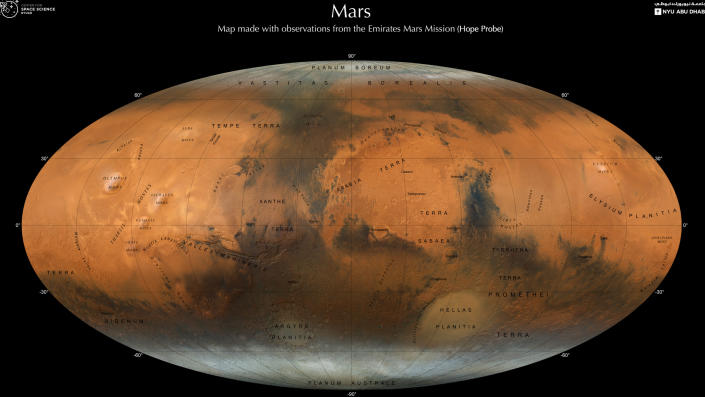LUC OLINGA
APR 1, 2023 10:03 AM EDT
It is a blow that will resonate throughout the British aerospace industry for a long time.
Great Britain had bet on Virgin Orbit, the company of billionaire Sir Richard Branson, to become a space power. But these ambitions, which manifested themselves in the development of a satellite manufacturing industry, have just taken a huge blow.
The company is ceasing operations "for the foreseeable future” after failing to secure a funding lifeline, only five years after it was created, CEO Dan Hart told employees on March 30, according to CNBC.
"Unfortunately, we’ve not been able to secure the funding to provide a clear path for this company,” Hart said, according to an audio recording of the meeting.
'No Choice'
"We have no choice but to implement immediate, dramatic and extremely painful changes,” Hart said, adding that this would be "probably the hardest all-hands that we’ve ever done in my life.”
Virgin Orbit (VORB) didn't immediately respond to a request for comment.
The company confirmed in a regulatory filing that it is laying off 85% of its workforce, or 675 employees, "in order to reduce expenses in light of the company's inability to secure meaningful funding."
Those impacted are located in all areas of the firm, according to the document filed with the U.S. Securities and Exchange Commission.
Virgin Orbit said it estimates that it will incur aggregate charges of approximately $15 million, consisting primarily of $8.8 million in severance payments and employee benefits costs, and $6.5 million in other costs primarily related to outplacement services.
The company expects to recognize the majority of these charges in the first quarter of 2023. The layoffs will be substantially complete by April 3.
"In addition, the company may incur other charges or cash expenditures not currently contemplated due to unanticipated events that may occur, including in connection with the implementation of the workforce reduction," Virgin Orbit warned.
These developments have accelerated the fall in Virgin Orbit's stock. The stock started the year at $1.85. It is currently trading at around 20 cents. This is a decline of 89.1% in just three months. It's a spectacular stock market rout for a company that went public, via a special purpose acquisition company, or SPAC, with a valuation of nearly $4 billion in December 2021.
Virgin Orbit only has a stock market capitalization of $67.4 million at the time of writing.
Founded in 2017 and based in California, Virgin Orbit suffered a major setback earlier this year when an attempt to launch the first rocket into space from British soil ended in failure. Virgin Orbit was the company organizing this mission, in collaboration with the British Space Agency and Spaceport Cornwall, which aimed to launch nine satellites into space, which would have been a major first for the UK. An “anomaly” prevented the rocket from being put into orbit.
"The data is indicating that from the beginning of the second stage first burn, a fuel filter within the fuel feedline had been dislodged from its normal position," Virgin Orbit explained mid-February. "Additional data shows that the fuel pump that is downstream of the filter operated at a degraded efficiency level, resulting in the Newton 4 engine being starved for fuel. Performing in this anomalous manner resulted in the engine operating at a significantly higher than rated engine temperature."
Unique Method

Virgin Orbit was not the same in the days following this failure.
In mid-March, the company had suspended its operations while it held discussions on possible sources of financing and explored strategic opportunities. It had indicated a few days later that it had resumed its activities.
Virgin Orbit stood out from rivals like Elon Musk's SpaceX. It wants to offer a fast and adaptable space launch service for small satellites weighing between 300 and 500 kg, a growing market.
The 21-meter Virgin Orbit rocket, dubbed LauncherOne, does not take off vertically, but is attached under the wing of a modified Boeing 747 called "Cosmic Girl”. Once the correct altitude is reached, the plane releases the rocket, which starts its own engine to push itself into space and to place its cargo in orbit.
Launching a rocket from an airplane is easier than a vertical take-off, because theoretically a simple airstrip is enough, instead of an expensive space launch pad, experts say. In summary, the advantage of this launch method is that it is more flexible and less expensive to put satellites into orbit than vertical rocket launchers.
Sir Richard Branson's space ambitions are now supported only by Virgin Galactic, which aims to send tourists into space.
Long Beach's Virgin Orbit lays off 675 people, 85% of its workforce
Samantha Masunaga
Fri, March 31, 2023 at 2:39 PM MDT
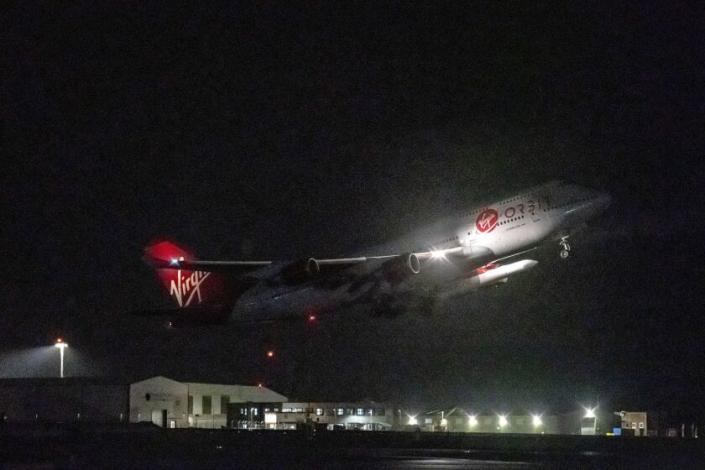
A repurposed Virgin Atlantic Boeing 747 aircraft named Cosmic Girl, carrying Virgin Orbit's LauncherOne rocket, takes off from Spaceport Cornwall at Cornwall Airport Newquay in England. (Ben Birchall / Associated Press)
Richard Branson's Virgin Orbit is laying off about 675 employees, or 85% of its workforce, as the air-launched rocket company failed to find funding to sustain its operations.
Most of the affected employees were based in Long Beach and Mojave.
The Long Beach company plans to spend $8.8 million in severance payments and employee benefit costs and an additional $6.5 million on outplacement services and other related costs, according to a company filing Thursday with the U.S. Securities and Exchange Commission.
To fund the severance and outplacement costs, Virgin Orbit sold a $10.9-million senior secured convertible note to Virgin Investments, the investment arm of Branson's Virgin Group, according to the filing.
The layoffs will be "substantially" complete by Monday. The remaining employees will focus on making progress on the company's next LauncherOne rocket, according to a person familiar with the matter who was not authorized to comment. That rocket is in production and nearly complete.
Virgin Orbit did not immediately respond to a request for comment.
The layoffs come two weeks after the company said it would pause operations and put most of its staff on furlough while it looked for additional cash.
Virgin Orbit faced a tough market for fundraising, with higher interest rates and greater reluctance from investors to fund technology that wasn't a sure-fire bet. Other small-satellite launch companies have also faced financial struggles this year, including Alameda-based Astra, which received a delisting warning from the NASDAQ late last year for having a share price below $1 for 30 consecutive days.
Virgin Orbit Holdings' stock traded for a little over $7 a share last year at this time. On Friday, the stock closed at 20 cents.
Virgin Orbit had hoped for a lifeline from private investor Matthew Brown, but talks between the two broke down late last week, according to CNBC.
The company launches small satellites via a rocket that blasts off from beneath the wing of a modified Boeing 747 aircraft. Virgin Orbit had four successful launches before a failure earlier this year that resulted in the loss of its customers' satellites.
This story originally appeared in Los Angeles Times.
In the end, only four of its six attempts ended with satellites in orbit.
Henry Nicholls / reuters
Andrew Tarantola
·Senior Editor
Thu, March 30, 2023
Virgin Orbit’s days of slinging satellites into space aboard aircraft-launched rockets have come to an end Thursday. After six years in business, Virgin’s satellite launch subsidiary has announced via SEC filing that it does not have the funding to continue operations and will be shuttering for “the foreseeable future,” per CNBC. Nearly 90 percent of Virgin Orbit’s employees — 675 people in total — will be laid off immediately.
Virgin Orbit was founded in 2017 for the purpose of developing and commercializing LauncherOne, a satellite launch system fitted under a modified 747 airliner, dubbed Cosmic Girl. The system was designed to put 500 pounds of cubesats into Low Earth Orbit by firing them in a rocket from said airliner flying at an altitude of 30,000 - 50,000 feet. Despite a string of early successes — both in terms of development milestones and expanding service contracts with the UK military, LauncherOne’s first official test in May of 2020 failed to deliver its simulated payload into orbit.
In all, Virgin Orbit made six total flights between 2020 and 2023, only four successfully. The most recent attempt was dubbed the Start Me Up event and was supposed to mark the first commercial space launch from UK soil. Despite the rocket successfully separating from its parent aircraft, an upper stage “anomaly” prevented the rocket’s payload from entering orbit. It was later determined that a $100 fuel filter had failed and resulted in the fault.
As TechCrunch points out, Virgin Group founder, Sir Richard Branson, “threw upwards of $55 million to the sinking space company,” in recent months but Start Me Up’s embarrassing failure turned out to be the final straw. On March 16th, Virgin Orbit announced an “operational pause” and worker furlough for its roughly 750 employees as company leadership scrambled to find new funding sources. The company extended the furlough two weeks later and called it quits on Thursday.
“Unfortunately, we’ve not been able to secure the funding to provide a clear path for this company,” Virgin CEO Dan Hart said in an all-hands call obtained by CNBC. “We have no choice but to implement immediate, dramatic and extremely painful changes.”
Impacted employees will reportedly receive severance packages, according to Hart, including a cash payment, continued benefits and a “direct pipeline” to Virgin Galactic’s hiring department. Virgin Orbit’s two top executives will also receive “golden parachute” severances which were approved by the company’s board, conveniently, back in mid-March right when the furloughs first took effect.


